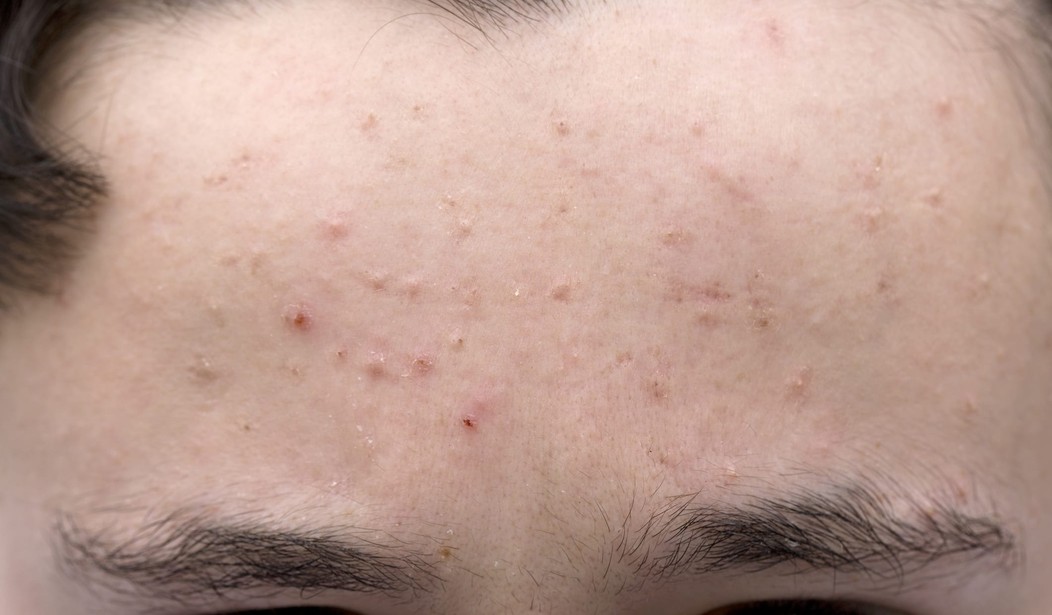“Pimples are in.” That’s what Laura Barton in an article for The Guardian really wants us to know. “After years of oppressive aesthetic perfection,” Barton writes, “acne positivity is a drive for people to be more open about their skin problems.”
“Acne positivity” is part of the larger “body positivity” movement which seeks to shake up “stereotypical” norms about what is considered beautiful. Often the movement is associated with “plus-size” women trying to shift the way we think about beauty and obesity — like last month’s Cosmopolitan cover featuring “plus-size” blogger Tess Holliday in her bathing suit.
Phew, I’m literally a COSMO GIRL!! Can’t believe I’m saying that! 😭😭
Thank you @CosmopolitanUK for this incredible opportunity 🙏🏻 If I saw a body like mine on this magazine when I was a young girl, it would have changed my life 💕
Issue hits stands 8/31! 🎉🎉🎉🎉 pic.twitter.com/sBYWY7nEwZ— Tess Holliday 🥀 (@Tess_Holliday) August 29, 2018
But why stop at acne, or obesity?! How about the Bad Breath Positivity Movement? (That sure would save us a lot of money on toothpaste and mouthwash!) Or what about the Super Long and Dirty Fingernails Positivity Movement? Or the Picking Your Nose and Eating It Positivity Movement? Or how about the Highly Contagious Incurable Virus Positivity Movement? (Vomit is so misunderstood.)
The problem with all these “positivity” movements, of course, is that none of these things are actually positive. Acne, for example, happens when “hair follicles become plugged with oil and dead skin cells.” That’s not good. Similarly — unless we are going to start the Heart Disease, Stroke, High Blood Pressure, and Diabetes Positivity Movement — obesity is also bad. The point ought not to be to elevate unhealthy traits to desirability, it ought to be to separate the person from those traits.
The idea that someone covered in acne, or weighing 500 pounds, could be just as valuable a human being as a clear-skinned skinny person is obviously true. But saying that, because someone is beautiful on the inside, her outer blemishes and weight issues are therefore desirable doesn’t actually follow. You are not your acne — or your fat, or your highly contagious incurable virus — so why embrace these things as if they somehow define you?
Often, these movements begin with a logical message. Kali Kushner, whose Instagram account, @myfacestory, documents her struggle with acne, says she began the account as “a rebellion against the typical beauty blogger accounts at the time.” The idea being that your acne — or other bodily imperfections — don’t make you less of a person. Which is true. Because you are not your pimples. But, the idea that this means pimples must be seen as beautiful simply because you are beautiful on the inside makes no sense. Are we being defined by our pimples, or aren’t we?
Similarly, if Tess Holliday had been featured on the cover of Cosmopolitan for some reason other than how fat she is — like being an Olympic swimmer, or a SCUBA diver or something — then having her appear in her bathing suit might have made sense. Instead, she was on the cover simply because she is obese. And the idea was that we should now all try to find obesity aesthetically appealing. But obesity is not appealing, because it comes with all kinds of dangerous (and sometimes fatal) health risks. Of course, Tess Holliday might be appealing as a person — which has nothing to do with her obesity. Again, are we being defined by our obesity, or aren’t we?
Splashing pictures of acne-covered obese people all over the covers of magazines isn’t going to make those things physically desirable. Barton herself calls acne a “skin problem,” which implies that it is something which needs to be fixed. The idea ought not to be to force people to find unappealing things appealing. Instead, these movements should be seeking to separate the person from the affliction. Why call attention to bodies at all, unless we are trying to imply that the essence of us is somehow represented by our physical form?
Instead of the “body positivity” movement, let’s have the “people positivity” movement (if we must have a movement at all) and advocate for an understanding of people’s inner selves as separate from their outer appearance. Which I think was probably the original intent of the body positivity movement. But — as with so many of these movements — it’s gone too far.









Join the conversation as a VIP Member